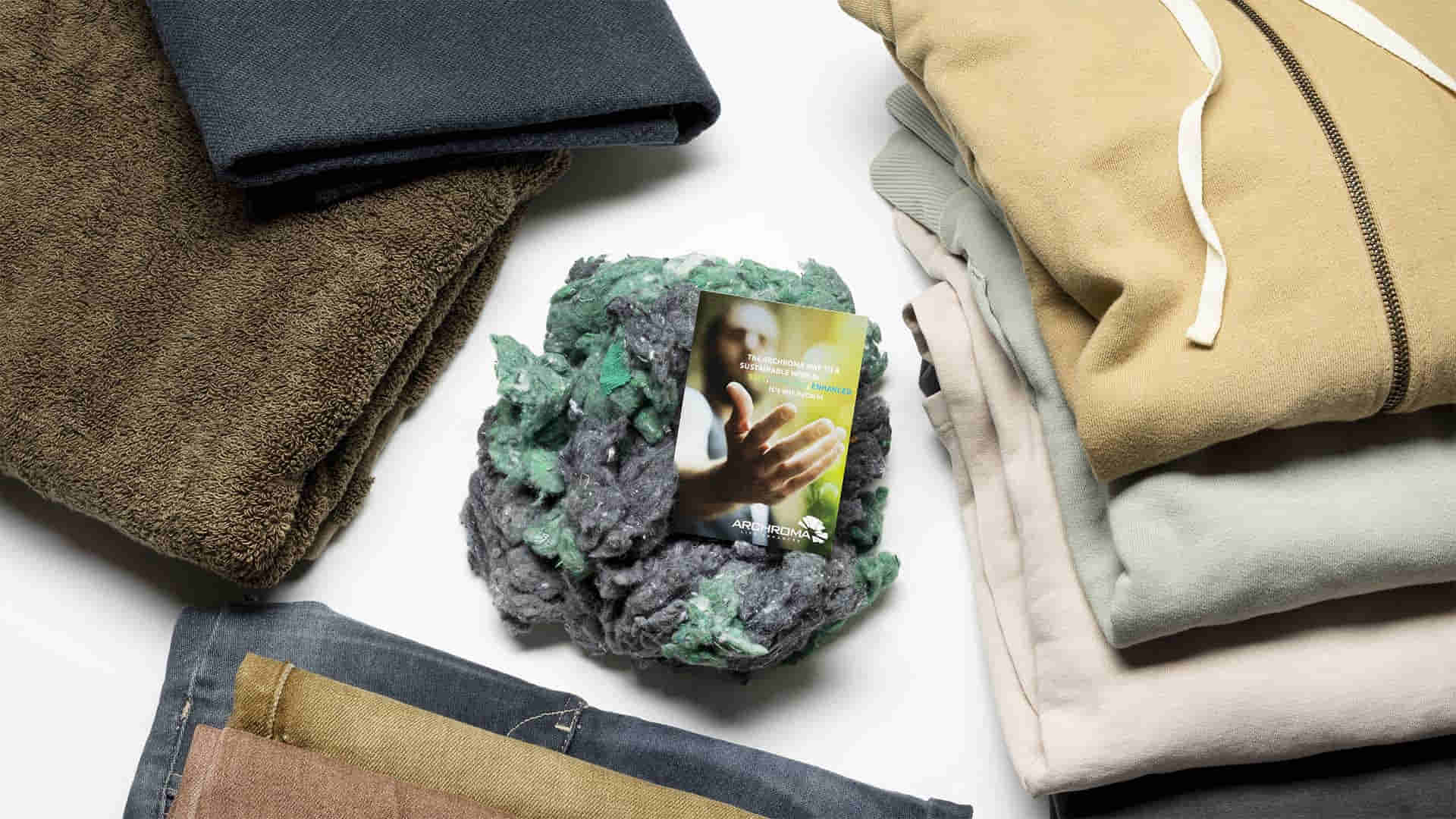Switzerland-based specialty chemical provider Archroma, has introduced the FiberColors* technology which allows upcycling textile waste into colors that are synthesized from a minimum content of 50% waste-based raw material. The company had already developed a way to turn waste from the herbal and food industry into its range of EarthColors® featured by brands such as G-Star, Patagonia, Esprit, Tom Taylor, Pangaia, UGG, and Primark. Archroma’s R&D experts have recently succeeded in developing a way to use cotton and/or polyamide and their blends (with a >95% purity) to substitute the major part of the petroleum-based raw material usually used to make dyestuff.
The resulting FiberColors* range, which is patent-pending and therefore exclusive to Archroma, includes five dyes covering a palette of timeless shades: Diresul® Fiber-Teak (brown shades), Diresul® Fiber-Ochre (olive shades), Diresul® Fiber-Maroon (bordeaux shades), Diresul® Fiber-Slate (blue grey shades) and Diresul® Fiber-Graphite (dark grey shades).

Garments will color with FiberColors from textile wastes
The dyes are especially suited for cellulose fibers such as cotton, viscose, linen and kapok, and can be used in continuous, exhaust, denim and garment dyeing and printing processes. With this, a brand can turn its own pre- and post-consumer textile waste into its own beautiful colors, and create a complete collection including t-shirts, chinos, sweatshirts, hoodies, polo shirts, and home textiles. FiberColors* offers an efficient solution for forward-thinking companies who want to help find a solution to textile landfills, and at the same time give value to waste including articles collected in their take-back schemes that cannot be reused.
According to earth.org, 92 million tons of textile waste is produced every year, which is expected to soar to 134 million tons by the end of the decade. Archroma Chief Executive Officer Heike van de Kerkhof stated that after creating colors from food and herbal waste with EarthColors®, they are taking a step further in circular manufacturing with FiberColors*, addressing the huge textile and fashion waste global issue, saying: “This is how we make our purpose to lead our industry towards a more sustainable future for our customers and markets, a reality. Because it’s our nature.”


